Mestre Napoleão, a brief story in the União do Vegetal
Agameton Ramsés Justino*
Marcus Levy**
| May 6, 2018
Napoleão Victor de Oliveira was an honored gentleman, respected by those who knew him. A Bahian from a village in the municipality of Monte Santo, he was born on May 6th, 1909, and would be 109 years old today. He was one of the Mestres of the União do Vegetal formed by Mestre José Gabriel da Costa and he is one of the least know by the irmandade of the UDV.
He moved to the interior of Mato Grosso in the 1940s, already married to Ana Maria de Oliveira. They first lived in Poxorêo, in the mining region, but soon established their residence in the then district of Rondonópolis, where Napoleão opened a hardware store and haberdashery (accessory products). Self-taught in accounting, he also was one of the first treasurers of the municipality of Rondonópolis. He became known in fact for his store, the Casa Oliveira, with which he supported his family.
Napoleão and Ana Maria had a couple of children, of whom three survived their early childhood. Helena and Antônio died, still youths, so that only their youngest daughter Nilma Victor de Oliveira made it to adulthood, and lived for 61 years, until 2006. Nilma was deaf and mute and expressed herself with much affection and kindness when she referred to her father. Ana, Nilma’s daughter, was 3 months old when her grandfather disincarnated, on August 12th, 1979, but has stored in her memory the love that her mother nurtured for her father: “She was in love with her dad. She lived mourning his death until her final years.”
Honored Man
Recognized for his generosity, it was common for him not to charge for the products he sold when the client wasn’t able to pay. By society’s standards of the time, one can affirm that he was a man of possessions. As told by his granddaughter, Ana, and his son-in-law Ademoel, Napoleão was a discrete person, but always willing to help, not waiting for nor asking for anything in return.
As Rondonópolis was an important highway interchange of entrance to the North of the country, people came from many regions searching for luck in the unknown and distant interior of Mato Grosso. Often, Napoleão assisted those who encountered difficulties in maintaining themselves and even paid the return passage for those who didn’t stay. His daughter kept many letters of thanks that he would receive from the people. Some of the letters arrived with money, in repayment for the help given, but he would refuse it when they wanted to pay him personally. “This was the legacy he left, of his goodness. He was a very generous person. He had love for the people” confirms Ana.
His brother, Eliziário Pedro tells of how Napoleão was a seeker of self-knowledge, cultivating the habit of reading spiritist books, and who encountered various religions before arriving to the União do Vegetal. Because of his work, he travelled frequently, taking advantage of these travels to feed his spiritual urges and also to seek health treatment for an illness that afflicted his wife.
Encounter with Mestre Gabriel
On one of these trips, he went to Porto Velho (RO) and met the Hoasca Tea from the hands of Mestre Gabriel, of whom he’d already heard about from his friend Firmino. The reason for this trip may have been to work, as some Mestres of the Origin tell it. Also, for the hope that the Vegetal might help his wife, as his brother Eliziário Pedro tells it. Or, who knows, maybe he went because of an internal call of his heart, to meet the light that he’d sought in his life. One thing’s for sure, and it’s that Napoleão departed by bus from Rondonópolis, on a trip that customarily lasted 4 days, on the dirt roads through dust, creeks, ferries and footbridges and encountered José Gabriel da Costa and his religion.
Mestre José Luiz de Oliveira (Mestre José Luiz) tells that Napoleão stayed in a hotel near Mestre Adamir’s (Franciso Adamir de Lima) house. Not knowing one another, they had a conversation over coffee, when Adamir spoke of the União do Vegetal and, noting something different in him, brought him to meet Mestre Gabriel. This first meeting was in 1968.
Declared a Mestre in the União do Vegetal
When he was in Porto Velho again, due to a word that he spoke in a Session, Mestre Gabriel declared him a Mestre in the União do Vegetal, authorizing him to take the Vegetal with him to give to his family and to those close to him in Rondonópolis. Mestre Gabriel oriented him to learn the opening chamadas of the Session and gave him a K7 audio tape of the singer Marinês, explaining that she would conduct the session for him. Back in Rondonópolis, what we know is that Napoleão drank the Vegetal with his friend Firmino.
Meste José Luiz remembers still an interesting occurance: when on another opportunity in which Napoleão participated in a Session of the Vegetal in Porto Velho, Mestre Gabriel asked that Mestre José Luiz write down the chamada of Caminho Firme (Firm Path) and give it to him. On the next day, when Mestre José Luiz arrived at the bus station to meet him, his bus was already leaving, but he was still able to deliver the paper through the window, even with the vehicle in movement.
Received Mestre Gabriel on March 27th, 1971
Napoleão participated in few Sessions in Porto Velho. Eliziário Pedro, who lived in that city in the beginning of 1970’s remembers on one day having encountered, by happenstance, his brother sitting on the veranda of a hotel. Not understanding what he was doing there, he asked for the reason of his trip and Napoleão explained that he came to participate in the religion that he was following. So, Eliziário took him to stay at his house and then gave him a ride to meet with Mestre Gabriel. That day was March 27th, 1971, the day in which Mestre Gabriel returned from his health treatment in Ceará and held a Session directed by Mestre Raimundo Monteiro de Souza (Mestre Monteiro). Napoleão was one of the disciples who received the Mestre at the airport and is present in the historic photo that registers the fact.
At that time, Napoleão was already a gentleman of 60 years of age, the oldest among all the Mestres of the Origin. We can imagine that Mestre Gabriel, upon seeing his deeds and his spiritual trajectory, had the confidence to give him, in such little time, the title of Mestre. He was the first person to leave the North of the country with Vegetal given by the hands of Mestre Gabriel. And even if at that time, he didn’t carry forth the expansion of the União, decades after, the União do Vegetal resurged in Rondonópolis-MT, the city where Napoleão dreamed of seeing the Mestre’s Work planted.
UDV present in the 13th region
By the hands of Mestre Clovis Cavalieri Rodrigues de Carvalho, some years after the disincarnation of Mestre Napoleão, the Vegetal arrived in Campo Grande (MS) and then in Cuiabá (MT), with Mestre Dercílio Marra da Silva. The União expanded from within the state and presently there is an Authorized Distribution of Vegetal in Rondonópolis. Today, in the 13th Region (Mato Grosso and Mato Grosso do Sul), the UDV unites an irmandade of more than 1,300 persons, the merit of the work of many in a story that began almost 50 years ago, when Mestre Napoleão returns to Mato Grosso, bringing with him the Vegetal.
Gratitude
Our sincere thanks to the family of Mestre Napoleão: his nephew Victor Pedro, associate of Nucleo Breuzim, who made possible the interviews with his family members. To Napoleão’s brother, Eliziário Pedro, to his son-in-law Ademoel and especially to his granddaughter Ana Nilma. Though she didn’t live with her grandfather, the stories told by Ana are memories of his relatives (mother, father, grandfather and cousins…) and of old friends of the family.
*Agameton Ramsés Justino is the Responsible Mestre of the Authorized Distribution of Vegetal in Rondonópolis (MT).
**Marcus Levy is a member of the Instructive Body of Núcleo Breuzim and is the Auxiliary to the Regional Coordination of the Department of Memory and Communication of the 13th Region.
Translation Coordinator: Isabel Cavalcante, member of Body of Counsel of Núcleo Jardim Florescendo (Gainesville, FL – USA) | Translated by: Adrian Van Deusen, member of the Instructive Body of Núcleo Jardim Florescendo (Gainesville, FL – USA) | Revised by: Jonathan Spoliansky, member of the Body of Counsel of Núcleo Jardim Florescendo (Gainesville, FL – USA).
 English
English Português
Português
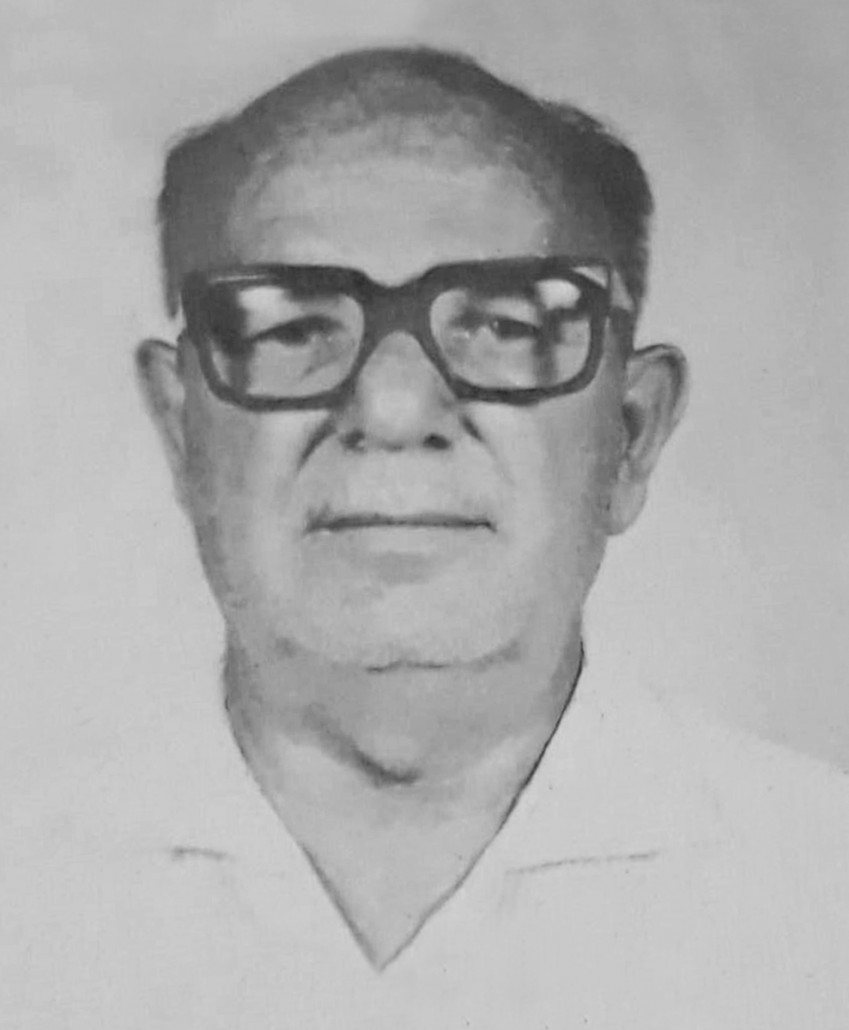
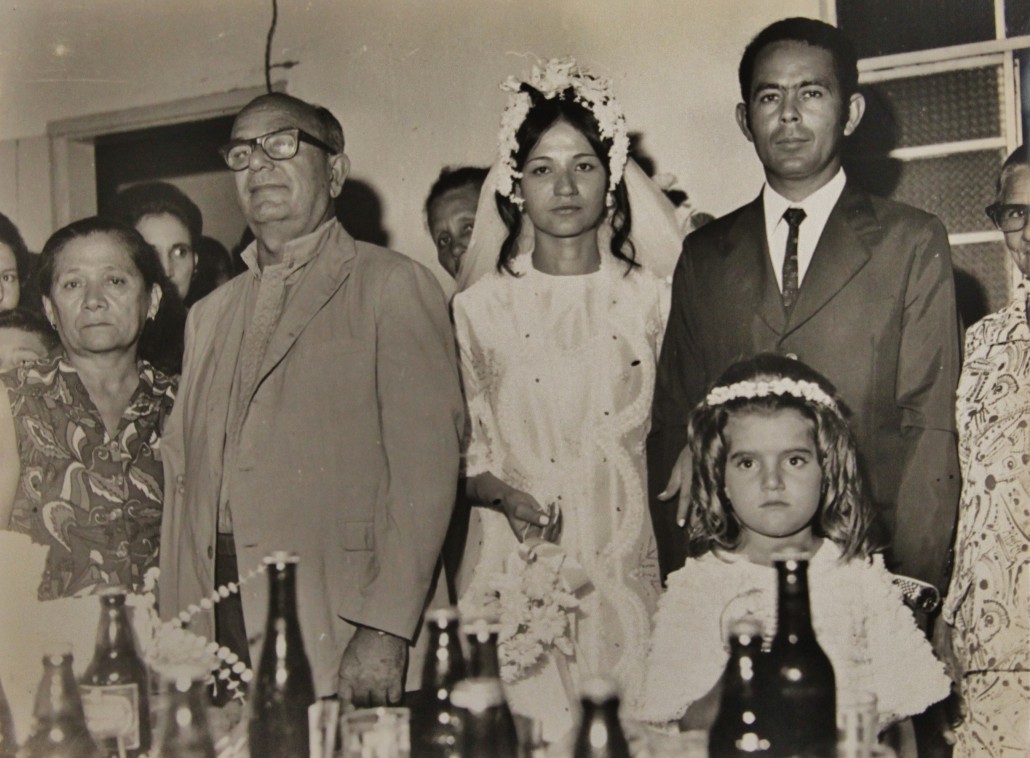
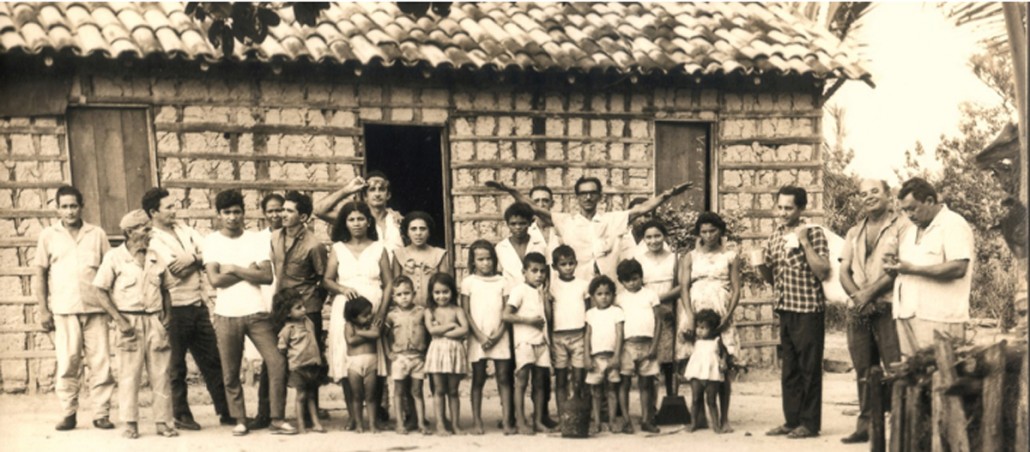
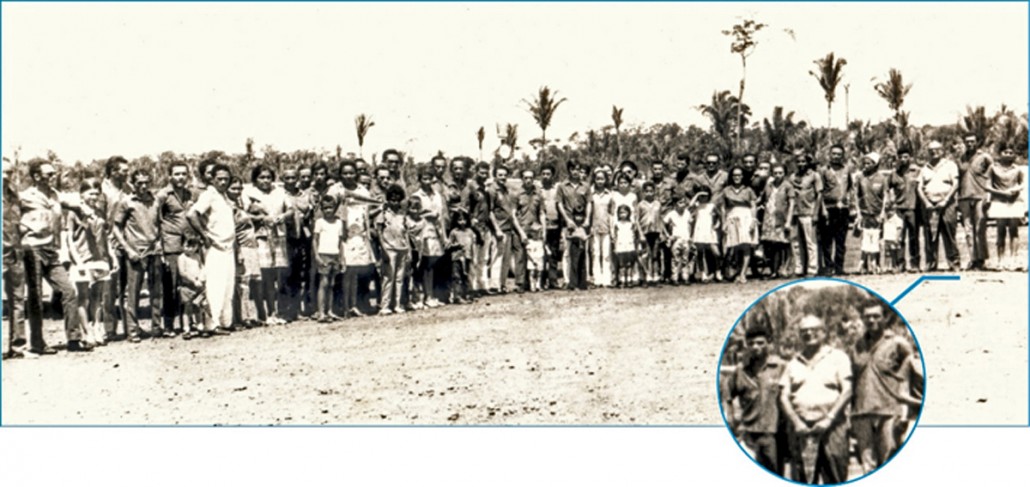

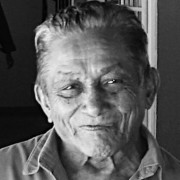
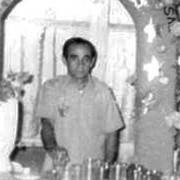
Leave a Reply
Want to join the discussion?Feel free to contribute!